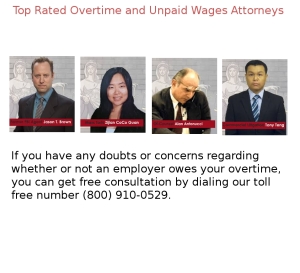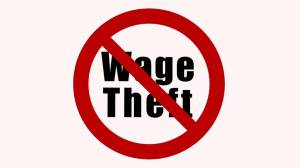Unpaid overtime is not an issue that has suddenly arisen. It is an issue that has been troubling workers for a long time even with the strict federal and state laws. The major reason behind these issues is the lack of knowledge and awareness among employees. Majority of them are not aware of their rights that enable them to claim payment for their overtime.
However, employers also manipulate and use a variety of methods to deprive their workers of overtime payment. Here are the methods that they use to manipulate time or schedule for this purpose.
Making employees work before signing in or signing off – It is a common method that companies might use to rob workers of their overtime payments. Some employers tell staff that the post-shift or pre-shift hours are not compensable, which is not true. You are entitled to receive payment for each hour you worked for the company whether in shift or not.
You can demand wages for these hours and if not given, raise the issue for your rights.
Making employees work during lunch or breaks – Some employers make their staff work during lunch or breaks without paying them for that time, which is the violation of law. You should know that you are entitled to payment for your overtime even if it was done during the shift in break or lunch.
Awareness regarding your rights is your only way to get paid correctly for all the hours you spent working for your company. If they still refuse to pay you even after raising the issue to higher authorities, then you should contact professional unpaid overtime attorneys in your region who are familiar with the laws and rules.
These lawyers can help you claim your rightful wages along with compensation for damages (if applicable).
 Are you planning to file an unpaid wages claim against your employer? There are many workers who are not getting properly paid for their hard work from their employers, which is why many are turning to law to claim justice. But for this purpose, you need to find an
Are you planning to file an unpaid wages claim against your employer? There are many workers who are not getting properly paid for their hard work from their employers, which is why many are turning to law to claim justice. But for this purpose, you need to find an 




